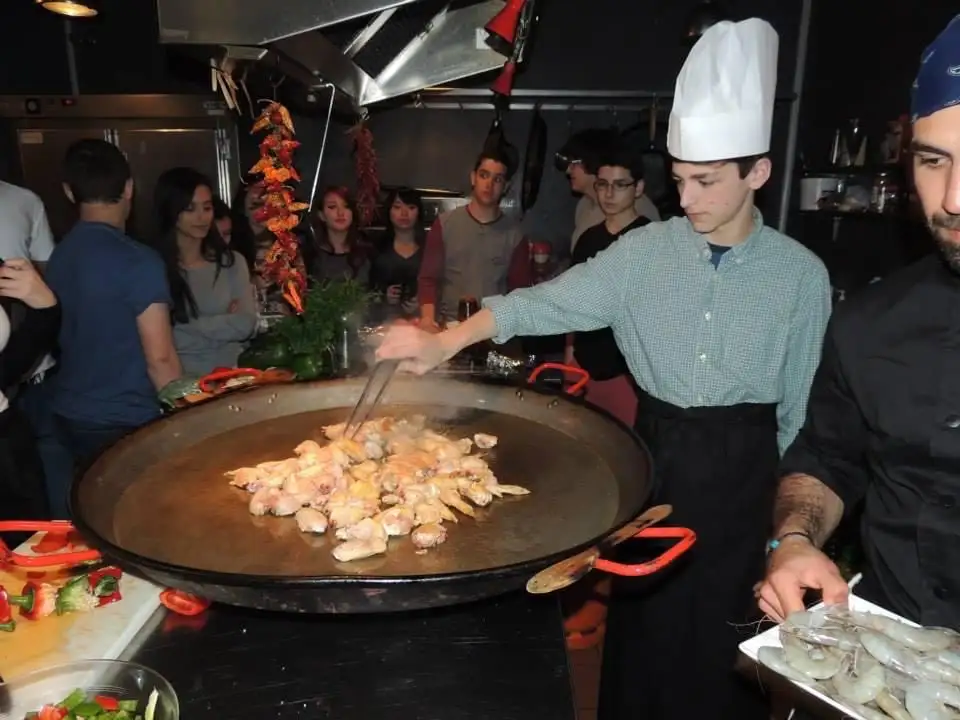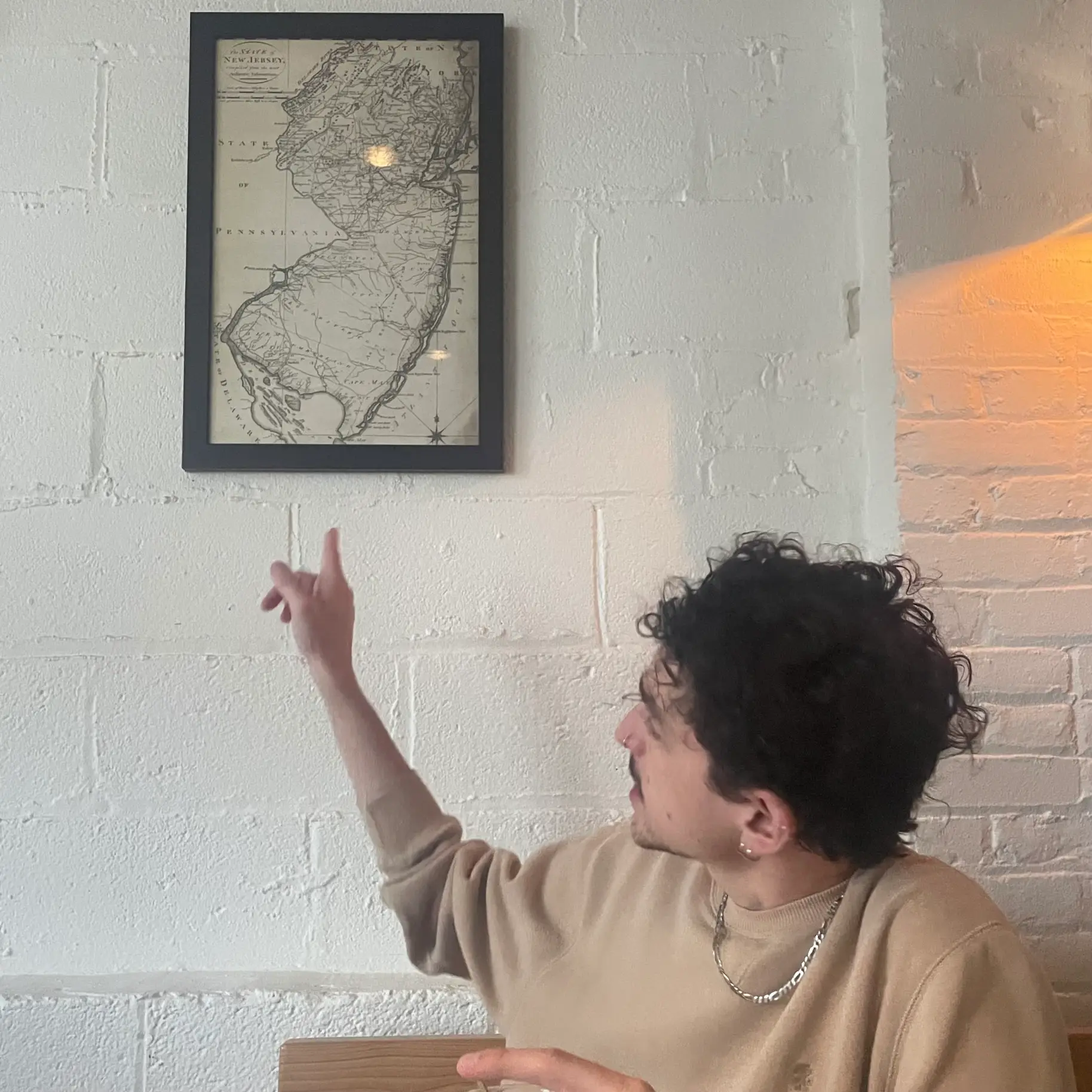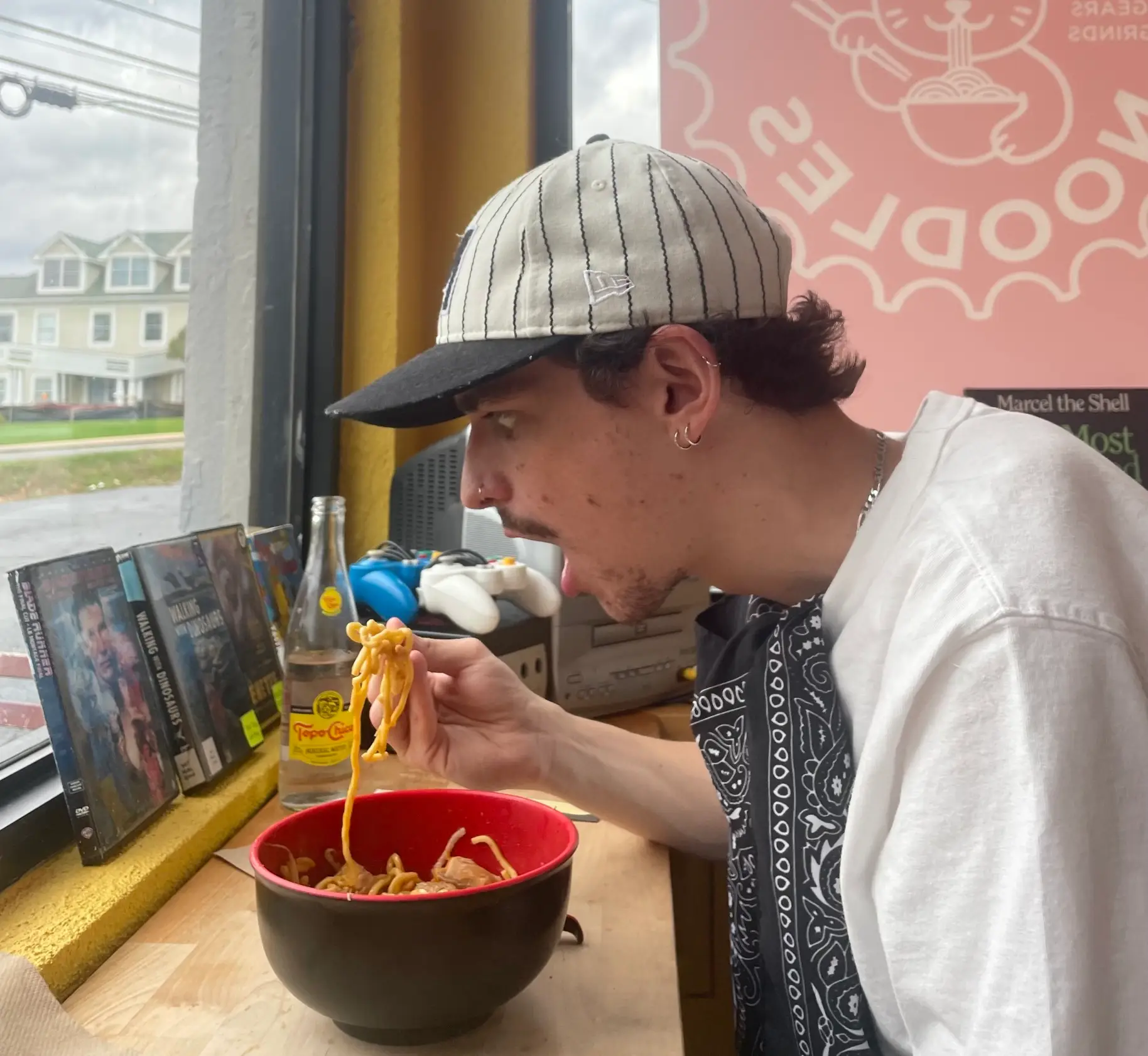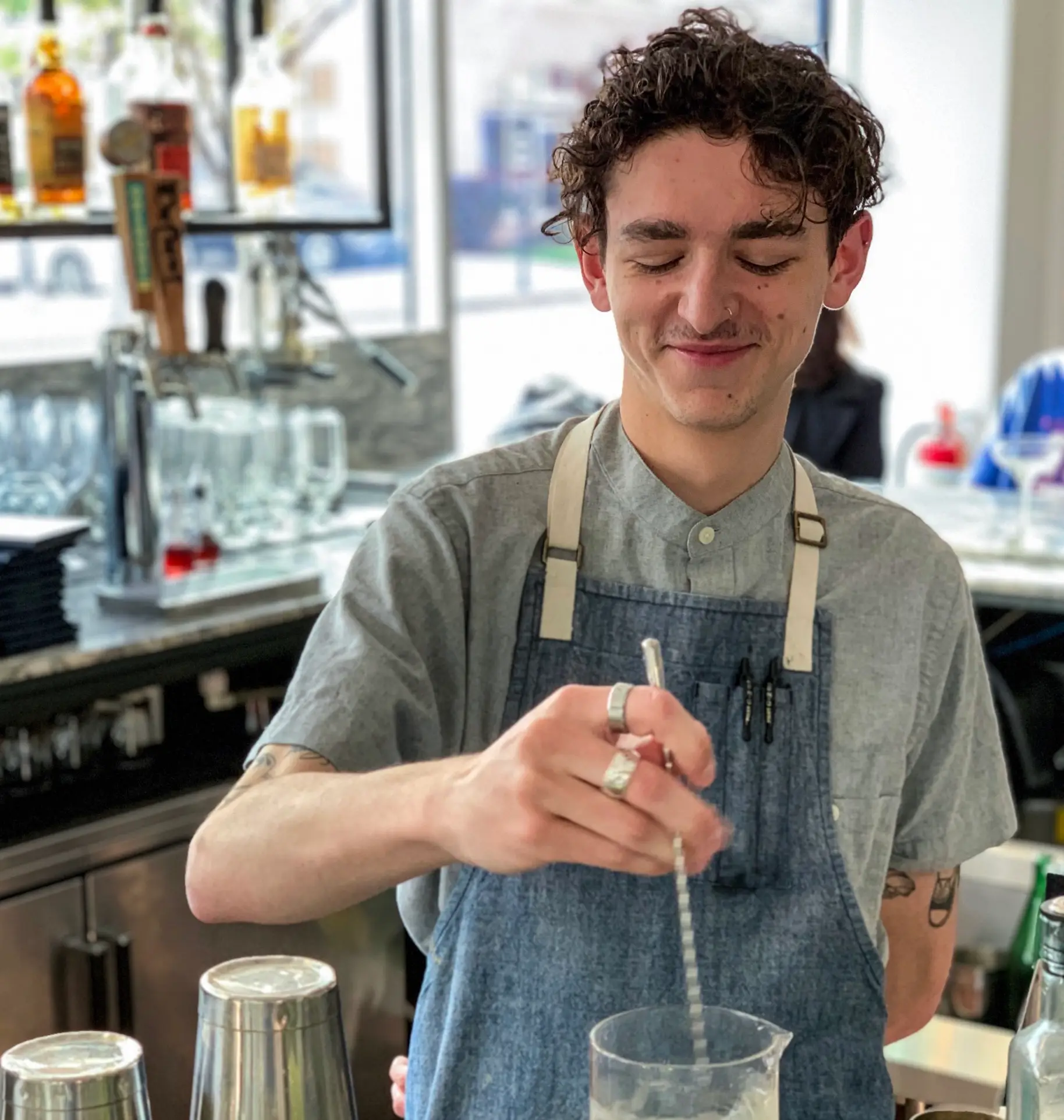What It's Like: Stories From Hospitality
How Pete Candia Savored His Time in Restaurants
February 8, 2024
The story of one food lover experiencing everything he could about restaurant life.
“New Jersey has the greatest dining scene in the country,” Peter Candia says. “Better than New York.”
Coming from the Food & Drink Editor of New Jersey Digest, you might think that this spiciest of hot takes is just part of the hype job Candia needs to perform for his home state. But Candia doesn’t mess around when it comes to food. Nothing in his life is as important; no interest as enduring, no passion closer to his identity.
Since 2019, Candia has introduced his audience to interesting food from every corner of the Garden State. He writes with the expertise of a chef, detailing complex tastes with precision. But if he had it his way, he wouldn’t be writing about restaurant life. He would be living it.
“I miss restaurants every day,” Candia told BentoBox. “If it were up to me, I’d still be working in them.”
Candia the journalist only exists because Candia the chef had to hang up his apron early. At age eight, he was diagnosed with limb-girdle muscular dystrophy, a disease that weakens muscles in the arms and legs. A decade later, while in culinary school, the first symptoms started to manifest. It quickly became clear that Candia’s time in restaurants was limited.
Rapidly approaching the end of the only career he ever wanted, Candia decided to make the most of the time he had left. Over the next few years, he went on to work in every part of his restaurant that he could — as a line cook, a server, and a bartender — to extend his farewell as long as possible.
He did, in other words, what true restaurant people do: scrap the plan, roll with adversity, and weather the storm with grace. His is a story about loving food, and loving restaurants, and making the most of whatever comes your way.

BentoBox Marketing & Commerce Platform
Deliver Smarter Hospitality
Want to stand out online, bring in more money, engage your diners, and streamline operations?
A lifelong love of cooking
For as long as he can remember, Pete Candia has expressed himself through food. “There’s nothing in the world I feel the same way about as I feel about food,” he says. “I tend to hyper-fixate on random things for like two months at a time. Food is the one thing that never goes away.”
As a kid, Candia would sit quietly in the kitchen, fascinated, and watch his aunt bake. He and his grandmother bonded over Emeril. From fourth grade onward, he would fall asleep to Food Network every night. Then came YouTube and its world of cooking content. Every level deeper into the world of food Candia went, the further he wanted to go. By the time he was in his late teens, he didn’t have a shadow of a doubt how he wanted to make his living.

Cooking paella on a field trip to Spain at age 17.
His first taste of restaurant life was a summer job working a community pool snack bar, making things like chicken wraps, burgers, and — perhaps instilling an early love of New Jersey cuisine — Taylor ham egg & cheese sandwiches. “I would have seventeen orders of chicken fingers and twelve hamburgers on the board. And it’s just me, this teenager in the kitchen. As soon as the rush was over, I would be, like, maniacally laughing. I loved it.”
In 2016, Candia started at the Culinary Institute of America. His first year went smoothly. Then, during his summer externship, a reality that he had forgotten about for years came back into focus. In the space of a few months, Candia went from an avid and happy student to someone whose plans were being slowly stolen away.
In the weeds
When Candia decided to go to culinary school as a teenager, his parents brought up a question: Do you really want to get into an industry you might not be able to do for the rest of your life? At the time, Candia was offended.
“But they were being, actually, as gentle as they could be,” he says now. “Because the truth was, I was definitely not going to be able to do this the rest of my life.”

As a writer, Candia has been outspoken as an unapologetic booster for New Jersey food culture.
Growing up, Candia had been able to avoid thinking much about his condition. Unlike some of the more debilitating forms of muscular dystrophy, limb-girdle symptoms can appear as late as adulthood. Though diagnosed at age eight, Candia was physically unaffected by his disease until he turned 19. Like many of his formative memories from back then, it was a moment that happened in a restaurant.
Actually, it happened in a basement. Candia was working as a line cook in a Manhattan fine-dining restaurant. Normally, he would head downstairs and grab everything he needed for prep that night, throw it in a hotel pan, and dart up to the kitchen. One day, climbing the stairs felt noticeably harder.
“I still did it, but it was more of a struggle. I got up the stairs and just thought, What the hell was that? I wasn’t even thinking about muscular dystrophy.” Candia proceeded to his station and started prepping. Then it hit him. His spirit fell. “The rest of that summer was me dealing with that mentally,” he says.
Candia looks back on those first few months of symptoms as one of the hardest periods of his life. He fixated, despondently, on every perceived loss of strength. He worked hard to hide it from other employees. Going down online rabbit holes only made him feel worse.
When COVID hit, it was a huge relief. Left up to me, I was never going to quit restaurants.
In reality, the strength in his arms and legs was diminishing gradually. It would be a year before he couldn’t walk up the stairs without using the railing, and years more before he had to take them one step at a time. But he knew what was coming: sooner rather than later, he would not be able to be a restaurant cook, let alone a chef, let alone run his own restaurant.
Rather than stay down, however, Candia changed tack. By the time he returned to CIA for the start of his second year, he’d become determined to execute a career pivot that would allow him to keep working in food. He began to eye a career as a writer.
The restaurant exercise plan
Over the next two years, Candia finished culinary school without limitation — or, at least, by managing his growing limitations in a way that kept them hidden.
Upon graduation, he jump-started his move into writing by enrolling in journalism school at his local community college. He also got a job at Osteria Crescendo, one of New Jersey’s highest-rated restaurants. Not as a cook, but as a server.
I would sit in my car after a Sunday shift and feel like someone who had just done leg day five days in a row.
His motivation for trading the kitchen for the dining room was twofold. One, he wanted to prepare for a life of covering restaurants by understanding everything he could about how they work, inside and out.
“For someone like me, who loves food and restaurants, it was important that I know what I was talking about,” he says. “If I’m going to write about it, I better have experienced every aspect of it.”

“I tend to hyper-fixate on random things for like two months at a time. Food is the one thing that never goes away.”
Candia also wanted to drink in as much of restaurant life as he could. And that meant coming out from behind the kitchen doors.
“I love every part of the restaurant,” he reflects. “Back-of-house, I love cooking. Front-of-house, I love cocktails and wine and explaining the dishes to guests.”
There was a third reason to try serving, too: Candia thought it might be easier on his body than cooking on the line. It turned out to be, if anything, harder. But in retrospect, the added exercise was a good thing. Candia now cites it as something that likely slowed down the progression of his muscle weakening between 2018, when he graduated culinary school, and when he was forced to stop working in March 2020.
“When COVID hit, it was a huge relief,” he says. “At the time, I really needed to go into writing full-time. But left up to me, I was never going to quit restaurants.”
Still, quarantine worsened his condition. “The biggest chunk of the disease’s progression was during COVID, when I was just sitting on my ass all day,” Candia says.
In fact, he returned to restaurant work for health reasons. He was already interning at New Jersey Digest when, in 2021, his doctor suggested he head back to the restaurant part-time, just to stay active.
That required taking a different job than he’d had before. By that point, Candia’s condition had gotten to where neither cooking nor serving was possible. The manager of the restaurant had long been in on Candia’s secret — which, increasingly, he couldn’t hide. This time, the rest of the staff would be informed as well. Everyone would do their part to accommodate him. More than a year after COVID hit, Candia headed back to Osteria Crescendo as a bartender.
If you are not a multitasker and you want to be, pick up bartending.
Candia loved being a bartender. He cultivated a passion for cocktails and enjoyed seeing the restaurant from this third vantage point. But even with the lower demand of staying behind the bar all day, the work was noticeably hard on his body.
“I’m happy I went back,” Candia reflects, “but I would sit in my car after a Sunday shift and feel like someone who had just done leg day five days in a row.” It was unsustainable.
In May 2022, Pete Candia’s restaurant career finally came to an end. It was a bittersweet set of circumstances: he got hired full-time at the magazine and moved to a different town, further away, where he would be on his own. Still, his heart hurt the day he walked out of Osteria Crescendo, as an employee, for what he knew would be the last time.
A well-rounded view of the restaurant
These days, Candia is anything but melancholy. His job at New Jersey Digest takes him to every corner of the state, where he’s able to spotlight dishes, chefs, and businesses in a language that makes use of his hands-on expertise. He views his career in food media as a return to a passion he had even before he started cooking.
“This was a job I dreamt of having back when I was a teenager watching Munchies and reading Eater,” he says. “It’s surreal to produce the kind of content I used to spend hours every day consuming.”

In 2021, Candia began his final stint in restaurants bartending at Osteria Crescendo.
Candia is grateful that he had enough time, and enough foresight, to experience every part of the restaurant. Back-of-house taught him how to work efficiently. Serving taught him how to talk with customers — “how to bullshit people,” as he says, but also how to explain dishes in a way they’ll appreciate. Bartending he calls a combination of the two: You have to manage time effectively while interacting with customers. “If you are not a multitasker and you want to be, pick up bartending,” he says.
Off the clock, Candia still sees cooking as his primary expressive medium. “The thing I love about food is the creativity,” he says. “I’ll think all day about what I’m going to make for dinner, and then completely improvise in the moment. It’s like a blank canvas.” This Christmas, he made his family a feast of seven fishes that included (of course) no fewer than nine fishes.
Pete Candia will always cook. He doesn’t plan to ever give that up. Making food is who he is. While it won’t be the dining public who gets to enjoy his food, it will instead be his friends and family: the ones who have been there for his whole journey, and who will be there wherever it takes him.
Read Peter Candia’s New Jersey Digest writing here. Follow him on Instagram @pete.candia.
Recommended

Community
How North Carolina Became a Restaurant Powerhouse
June 24, 2024
The Tar Heel State is the nation’s fourth-biggest for new restaurant openings despite being ninth biggest in terms of population. Here’s what’s behind the growth.

The BentoBox 25
Supporting Women in Hospitality with Chef Elena Reygadas
May 14, 2024
Beyond shaping the city’s food scene at restaurants like Rosetta, the CDMX native has been an outspoken advocate for women pursuing culinary careers.

The BentoBox 25
Lewis Barbecue Brings High-Touch Hospitality to Texas BBQ
May 14, 2024
How the Charleston, SC restaurant group brings authentic Texas BBQ to a new environment.


